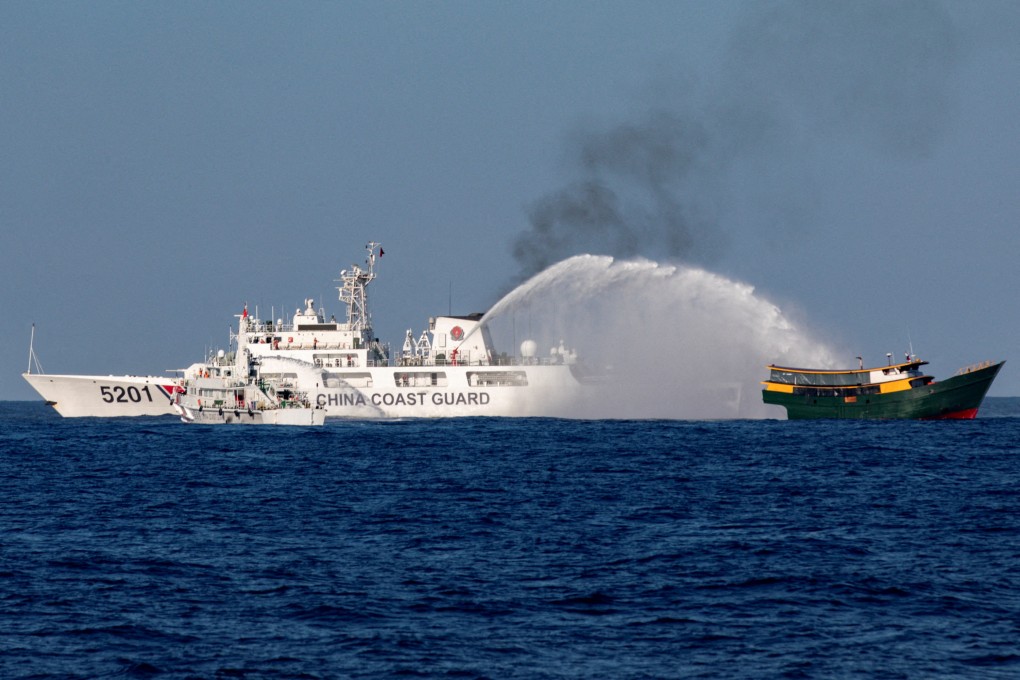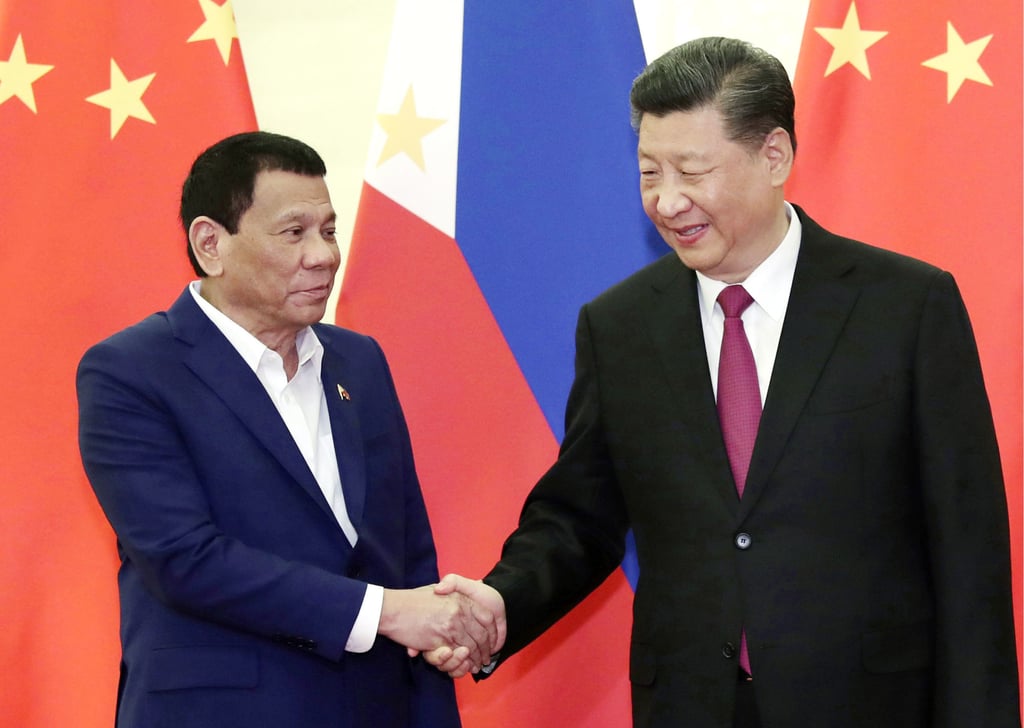Asian Angle | Duterte-Xi pact: how Philippines’ domestic politics can affect management of South China Sea tensions
- Shifting gears on foreign relations brought by leadership change may bear on how a country’s commitment to deals is viewed by other disputants
- This may also make Filipino leaders less keen to explore progressive arrangements in the South China Sea, for fear of political backlash at home

Retired Supreme Court Associate Justice Antonio Carpio called the deal a “disguised surrender” of the country’s sovereign rights within its exclusive economic zone. Senator Ana Theresia Hontiveros called it “treasonous” and asked for an inquiry.
The covenant allegedly entails Manila agreeing not to send construction materials to reinforce its outpost – a corroding beached ship – in the low-lying Second Thomas Shoal. Detractors point to it as abandoning the weathered vessel to the elements, which plays into Beijing’s hands.

Senate Foreign Affairs Committee Chair Maria Imelda Josefa Remedios Marcos, who is also President Ferdinand Marcos Jnr’s sister, said however that such reaction was exaggerated and that such talks were practical.
The range of views on the unwritten understanding shows how domestic politics affects foreign policy. Shifting gears on foreign relations brought by leadership change may bear on how a country’s commitment to deals is viewed by other disputants. The high political cost of such “agreements” may inhibit interest in interim or practical arrangements.
This is especially so for a rowdy democracy like the Philippines, which attaches high salience to the maritime row relative to other littoral states including Indonesia, Malaysia and Brunei.

